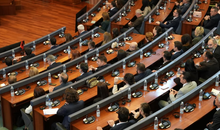
 Flash News
Flash News
Suspected of being murdered, photo emerges of 23-year-old found dead in Shkopet lake
Theth action, resident in tears: I built on my land with my life's expenses, the state should not destroy it
Directors targeted! After Fier and Durrës, Rama arrives in Elbasan
Name/Identification of the 23-year-old found dead near Shkopet Lake
IKM action in Theth, residents come out in protest
60% of families in Albania do not have money to cover unexpected expenses

60% of families in Albania can have enough liquidity to get through the month, or to do their expected activities.
But, if they will face unexpected expenses such as an illness or other problem, they would not be able to cope.
The material "Are Albanian families financially fragile", by Elona Dushku, Research Department, in the Bank of Albania has analyzed the financial fragility of Albanian families based on the ability of families to cope with an unexpected expense, as well as analyzes alongside socio- economic (such as: age, gender, debt), the role of composition of the portfolio of household assets.
Financially fragile households are those households that can meet expected expenses but do not have sufficient liquidity to meet unexpected expenses.
Using the data obtained from the first round of the Family Wealth Survey in Albania, it has been estimated that 60% of families in Albania are considered financially fragile, that is, they are families that do not have enough liquidity to cover an unexpected expense, in the measure of the median total family income.
Estimates obtained from multinomial regressions show that the probability of families being financially fragile is negatively related to the level of education of the reference person, the study estimates.
Also, the results show that financial access and family ties reduce the likelihood that families will be financially fragile, according to BSH.
Other INSTAT data show that an Albanian family spends an average of 40% of total expenses on food alone. other Eurostat data show that the budget we spend on food is the highest in Europe.
This is an indirect indicator of poverty, as spending on food is an essential existential need. As food takes the main part of the budget, there is little liquidity left to meet other needs, especially unforeseen ones.
Eurostat data show that an average European family spends 13.6% of the total on food, or three times less than in Albania.
Even in the countries of the region, this indicator is lower, where the lowest level is Serbia (24.1%), Montenegro (27.2%), North Macedonia (30.6% for 2019), Bosnia and Herzegovina (32.2%). ). The data for Kosovo are missing, but the previous indicators were lower than those of Albania.
Spending a significant portion of the budget leaves less room for other activities. For example, for entertainment and culture, a European family spends 8.4% of the budget, while an Albanian family only spends 2.7%.
Europe spends 8.5% on restaurants, while Albania spends 7.3%.
The budget for communication is higher, with 3.9% in Albania against the European average of 2.3% due to more expensive prices.
Europe spends more on housing, water, electricity, paid rent, with 24.1% of the total, compared to 9.8% of Albanian families./ Monitor
Latest news


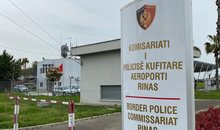
The head of the Rinas police station is reconfirmed in office
2025-07-09 11:25:03


Found dead in Shkopet Lake, 23-year-old has injuries to his throat
2025-07-09 10:41:39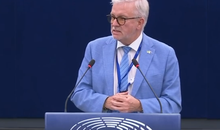


Hoxha: We will have a parliament that will surpass any comedy program!
2025-07-09 10:10:32

Directors targeted! After Fier and Durrës, Rama arrives in Elbasan
2025-07-09 09:53:57
Name/Identification of the 23-year-old found dead near Shkopet Lake
2025-07-09 09:42:34
IKM action in Theth, residents come out in protest
2025-07-09 09:34:54
Reasons why the EU has not imposed new sanctions against Russia
2025-07-09 09:18:35
DW: Online scams increase human trafficking
2025-07-09 09:01:29

Reported missing by his father, 23-year-old found dead near Shkopet lake
2025-07-09 08:42:13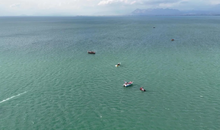

Horoscope, what do the stars have in store for you today?
2025-07-09 08:25:44
Sun and rain, Wednesday with unstable weather
2025-07-09 08:06:58
Posta e mëngjesit/ Me 2 rreshta: Çfarë pati rëndësi dje në Shqipëri
2025-07-09 07:52:02

Tabaku: Salianji bore a political cost that no one in Albania has borne
2025-07-08 22:36:15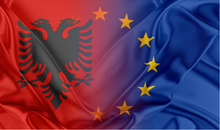


Sekretet për të shijuar verën si një ‘profesionist’
2025-07-08 21:45:06


Albania's Waste Crisis: Toxic Smoke and Deep Governance Problems
2025-07-08 21:13:07
Alarming pollution in Fushë-Arrëz, copper factory waste turns the Fan River red
2025-07-08 21:07:14

Poll/ How do you assess the Prime Minister's intervention in local government?
2025-07-08 20:40:01
28 arrested in Italy and Spain for drug trafficking, including an Albanian
2025-07-08 20:24:14
Residents clash with police in Theth: We are on our land
2025-07-08 20:11:41
Death of 27-year-old in Lipjan, Osmani: To be investigated independently!
2025-07-08 20:06:52
Trump promises US will send more weapons to Ukraine
2025-07-08 19:54:25
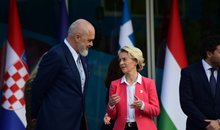
EU targets health, education, police and cadastre as areas of corruption
2025-07-08 19:23:34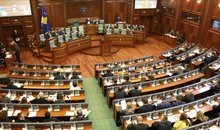

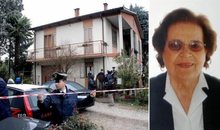
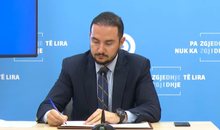

Salianji after his return: I did not oppose for functions, but for vocation
2025-07-08 18:23:15
Will he run in the 2029 elections? Here's how Salianji answers
2025-07-08 18:16:09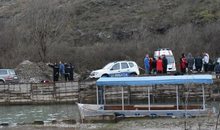
Boat captain drowns after diving into water to save two tourists in Shkodra
2025-07-08 18:05:12
Salianji from the DP headquarters: I brought a drug trafficker to justice
2025-07-08 18:03:26
After Fier, Rama "landes" in Durrës, dismissals expected
2025-07-08 17:53:32
Ervin Salianji arrives at the blue headquarters, welcomed by supporters
2025-07-08 17:45:12
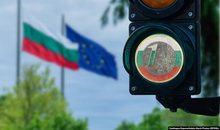
EU approves final steps for Bulgaria's Eurozone membership
2025-07-08 17:43:06

Zhupa after Salianj's release: Inspiration for every opposition member
2025-07-08 17:19:39
Actor David Killick passes away
2025-07-08 17:09:23



Threatened with dismissals, Rama arrives at the Fier municipality
2025-07-08 16:39:19
Extreme temperatures temporarily close Acropolis in Greece
2025-07-08 16:30:34

A plot of cannabis is discovered in Mazha, Kruja
2025-07-08 16:13:48

Republika Srpska allocates additional 22 million euros for lobbying in the US
2025-07-08 15:52:04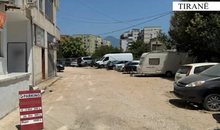

Spices that protect you from mosquitoes!
2025-07-08 15:30:03

Accident on the Vlora-Qeparo axis, one injured
2025-07-08 15:11:52
Berat, 17 years part of UNESCO's world heritage
2025-07-08 15:03:30
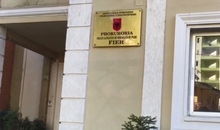

Cost of living increases, inflation rises to 2.4% in June, driven by food
2025-07-08 14:29:54
VIDEO/ Restaurant roof collapses in Italy, one victim and ten injured
2025-07-08 14:18:44
Requested release from cell, Supreme Court leaves Veliaj in prison
2025-07-08 14:07:41
TikTok shutdown/ Austrian media: Rama benefited politically from the app ban
2025-07-08 13:48:25
Acropolis temporarily closed due to heat
2025-07-08 13:31:09



Salianj's release/Berisha: He was politically condemned by Rama and Xhafa!
2025-07-08 13:00:13

Knife attack on Peshkopia Boulevard
2025-07-08 12:44:10


Fier Court decides on the conditional release of Ervin Salianj
2025-07-08 12:15:23
Cost of living increases, inflation rises to 2.4% in June due to food
2025-07-08 12:00:16


Requesting conditional release, Ervin Salianji arrives at the Fier Court
2025-07-08 11:16:36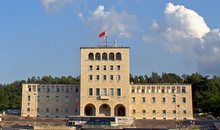
The first phase of university applications begins today
2025-07-08 11:10:52
Fire in Lura, flames endanger the National Park
2025-07-08 10:53:43
Trump warns of 35% tariffs on Serbia and 30% on Bosnia and Herzegovina
2025-07-08 10:37:32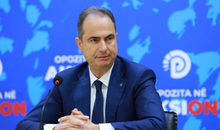
Thethi rooster and the dung cock
2025-07-08 10:24:01

Fire in Dukat endangers Llogara National Park
2025-07-08 10:01:39
International drug search: 36-year-old arrested in Durrës (NAME)
2025-07-08 09:50:48
Thethi, tourists "criticize" modern trend
2025-07-08 09:39:54
Fire on Mount Dukat still active, Llogara National Park at risk
2025-07-08 09:28:12
Veliaj's appeal to be heard today in the High Court
2025-07-08 09:16:02
"Bad sign for democracy"/ Parliament neglects reporting by institutions
2025-07-08 09:04:56
Today's hearing at the Fier Court, Salianji requests conditional release
2025-07-08 08:56:39
